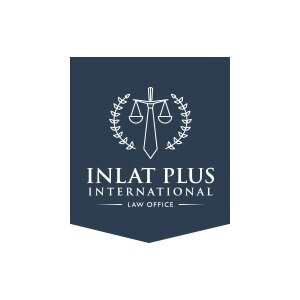Best Collaborative Law Lawyers in Latvia
Share your needs with us, get contacted by law firms.
Free. Takes 2 min.
Free Guide to Hiring a Family Lawyer
Or refine your search by selecting a city:
List of the best lawyers in Latvia
About Collaborative Law in Latvia
Collaborative Law in Latvia is a legal process where parties work together to resolve their disputes without going to court. It is a voluntary and confidential process aimed at finding mutually beneficial solutions through open communication and cooperation.
Why You May Need a Lawyer
You may need a lawyer in Collaborative Law to ensure your rights are protected, to help you negotiate effectively, and to provide you with legal advice throughout the process. Additionally, a lawyer can help you understand your rights and obligations under Latvian law.
Local Laws Overview
In Latvia, Collaborative Law is governed by the Latvian Collaborative Law Act, which sets out the procedures and rules for collaborative practice. The parties involved in a collaborative process must agree to participate voluntarily and in good faith. The decisions made through the collaborative process are legally binding once they are signed by all parties.
Frequently Asked Questions
1. What types of disputes can be resolved through Collaborative Law in Latvia?
Collaborative Law can be used to resolve a wide range of disputes, including family law matters, civil disputes, commercial disputes, and more.
2. Is Collaborative Law legally binding in Latvia?
Yes, the decisions made through the collaborative process are legally binding once they are signed by all parties involved.
3. How long does the Collaborative Law process typically take in Latvia?
The length of the Collaborative Law process can vary depending on the complexity of the dispute and the willingness of the parties to cooperate. It can range from a few months to over a year.
4. What are the benefits of using Collaborative Law in Latvia?
Collaborative Law offers a more cost-effective, confidential, and cooperative way to resolve disputes compared to traditional litigation. It also allows parties to maintain more control over the outcome of their dispute.
5. Can I still go to court if the Collaborative Law process fails?
If the Collaborative Law process fails to reach a resolution, the parties can pursue other legal options, including going to court to resolve their dispute.
6. Do I need a lawyer for Collaborative Law in Latvia?
While parties are not required to have a lawyer in the Collaborative Law process, having legal representation can help protect your rights and provide you with legal advice throughout the process.
7. Are the discussions in the Collaborative Law process confidential?
Yes, the discussions and information shared in the Collaborative Law process are confidential and cannot be used in court proceedings.
8. Can I use Collaborative Law for international disputes in Latvia?
Collaborative Law can be used for international disputes in Latvia, but it may involve additional complexities, such as coordinating with legal professionals in other countries.
9. How do I find a Collaborative Law professional in Latvia?
You can search for Collaborative Law professionals in Latvia through local legal directories, bar associations, or by asking for recommendations from other legal professionals.
10. What are the costs involved in Collaborative Law in Latvia?
The costs of Collaborative Law in Latvia can vary depending on the complexity of the dispute and the professionals involved. It is important to discuss the fees and payment structure with your lawyer before proceeding.
Additional Resources
For more information on Collaborative Law in Latvia, you can contact the Latvian Bar Association or the Latvian Collaborative Law Association.
Next Steps
If you are in need of legal assistance in Collaborative Law in Latvia, contact a qualified lawyer who specializes in this area to discuss your options and begin the process of resolving your dispute collaboratively.
Lawzana helps you find the best lawyers and law firms in Latvia through a curated and pre-screened list of qualified legal professionals. Our platform offers rankings and detailed profiles of attorneys and law firms, allowing you to compare based on practice areas, including Collaborative Law, experience, and client feedback.
Each profile includes a description of the firm's areas of practice, client reviews, team members and partners, year of establishment, spoken languages, office locations, contact information, social media presence, and any published articles or resources. Most firms on our platform speak English and are experienced in both local and international legal matters.
Get a quote from top-rated law firms in Latvia — quickly, securely, and without unnecessary hassle.
Disclaimer:
The information provided on this page is for general informational purposes only and does not constitute legal advice. While we strive to ensure the accuracy and relevance of the content, legal information may change over time, and interpretations of the law can vary. You should always consult with a qualified legal professional for advice specific to your situation.
We disclaim all liability for actions taken or not taken based on the content of this page. If you believe any information is incorrect or outdated, please contact us, and we will review and update it where appropriate.
Browse collaborative law law firms by city in Latvia
Refine your search by selecting a city.









